Events leading up-to the Outbreak Of First World War
Both camps indulged themselves in struggle to defy each other and expand their powers. The followed events occurred over the time which ultimately led to the outbreak of first Global War:
First Moroccan Crisis (1905-6)
This was an attempt by the Germans to expand their empire and to test the recently signed Angl-French "Entente Cordiale" with its understanding that France would recognize the Britain's position if Egypt in return for British approval of a possible French takeover of Morocco; this was one of the fewest remaining areas of Africa not controlled by a European powers. The Germans announced that they would assist the Sultan of Morocco to main his country's independence and demand an international conference to discuss its future. A conference was duly held at Algeciras in southern Spain.The British believed that if the Germans got success in this, they would get the virtual control of Morocco. This would be an important step on the road to German diplomatic domination and it would further encourage them to press ahead with their Weltpolitik. The British, who had just signed the "Entente Cordiale" with French, were determined to oppose Germans at the conference. The Germans did not take the "Entente" seriously because of the historic rivalry between Britain and France. But to the amazement of Germany, The Britain, Spain,Russia and Italy supported the French demand to control the Moroccan ban and the police. It was a serious diplomatic defeat for the Germans, who realized the significance of newly formed Anglo-French alliance. The successful British defense of France proved the strength of this newly formed alliance between the two old rivals, and this crisis is also seen as the reason of Anglo-Russo convention of 1907.
Anglo-Russian Agreement 1907:
On 31 August 1907, British and Russia signed an agreement in St. Petersburg. which put in place the final piece of the alliance system as it has widely been considered to be a major contributing factor regarding the outbreak of the First Global War. For year the British had viewed Russia as threat to their interest in the Far East and India but the Russian defeat to Japan in the war of 1904-5 was thought to have weakened it considerably and was no longer taken as threat by the British. While on other hand Russians were keen to end their long standing rivalry with the British to attract British investment for the industrial modernization. This move was taken by Germans as Anti German move and saw it as confirmation of its fears that British, French and Russians are planning to encircle them.
The Bosnia Crisis of 1908
This brought tension between Austria-Hungry and Serbia to a large extent. The Austrians, taking advantage of a revolution in Turkey, formally annexed the Turkish province of Bosnia, which they had been occupying since 1878. This was a deliberate blow at the neighboring state of Serbia, which had also been hoping to take back Bosnia since it contained 3 million Serbs among its mixed population of Serbs, Croats, and Muslims. The Serbs appealed for help to their fellow Slavs, the Russians, who called for a European conference, expecting the French and British support. When it became clear that Germany would support Austria in the event of War, the French drew back, unwilling to become involved in a war in the Balkans. The British were also unwilling to indulge themselves in a war and did no more than protest to Austria-Hungry. The Russians also not dared to risk another War without the support of their allies after its humiliating defeat at the hands of Japan in 1904-05. So, there was no help for Serbia as no conference took place and Austria kept Bosnia. It was a victory for Austro-German alliance, but it had bitter result as Serbia remained hostile toward Austria and this hostility sparked off the outbreak of the war.
The Agadir Crisis of 1911
This crisis was caused by the further developments in the situation in Morocco. French troops occupied Fez, the Moroccan capital, to put down a rebellion against the Sultan.It looked as if the French were about to annex the Morocco. The Germans sent a gunboat to the Moroccan port of Agadir, hoping to pressurize the French into giving territorial compensation. The British were worried that if Germans occupied the Agadir port then it would be a trouble for them as Germans could use it as Naval base and could threaten their trade routes. In order to strengthen French resistance, Lloyd George used a speech to denounced aggressive German actions and there was talk of war. The German back off and agreed to recognized the French protectorate over Morocco. This was seen as victory for Entente Powers, but in Germany the public opinion became Anti British as they were increasing their Navel power. At the end of 1911, British had more battleships than Germans.
The First Balkan War of 1912
The Second Balkan War of 1913
The Bulgarians were not satisfied with their gains from the peace settlement and they blamed Serbia. They had been hoping to get Macedonia as most of it had been given to Serbia. Therefore, they attacked Serbia but their plan backfired when Greece,Romania and Turkey supported Serbia. The Bulgarians were defeated and by the Treaty Of Bucharest 1913, they forfeited most of their gains from the First Balkan war. The British and German influence prevented the escalation of war by restraining Austria to attack Serbia, who were trying to support Bulgaria and attack Serbia. The consequences of the Balkans war were serious.
Serbia had been strengthened and was determined to stir up trouble among the Serbs and Croats living within the Austria-Hungry territory. While Austria-Hungry was also determined to put an end to the Serbia's ambitions.
The Assassination of Archduke Franz Ferdinand:
The tragic event which really triggered the outbreak of war was the assignation of Austrian Archduke Franz Ferdinand in Sarajevo,the Bosnian Capital, on 28 June 1914. It ultimately led Austria-Hungry to declared war on Serbia, which soon turned into the First World War. The Archduke and heir to Austrian Emperor Franz Josef, was paying an official visit to Sarajevo. When he and his wife were shot down by Serb, Gavrilo Princip. The Austrian government blamed Serb government behind this assassination and sent them harsh ultimatum. The Serbs accepted most of the Austrian demands but Austrians with the support of Germany were determined to use this incident declare war on Serbia. On 28 July, Austria-Hungry declared war on Serbia, and in response, the Russians to support their alley Serbian order a general mobilization. The German government demanded that this ought to be cancelled and when Russian refused to do so, Germany declared war on Russia and France on 1 and 3 August 1914.
When German army entered Belgium on their way to invade France. The Britain, who had promise to defend Belgium neutrality, demand their withdrawal and German refusal to comply with this demand prompted the Britain to enter the war on 4 August 1914.
This led to the outbreak of First World War, which changed the World and specifically the Europe.



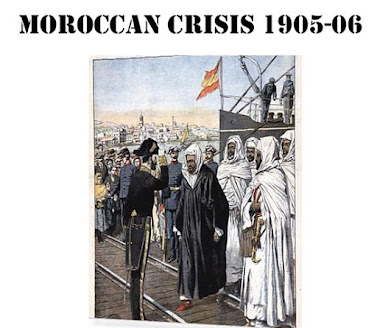
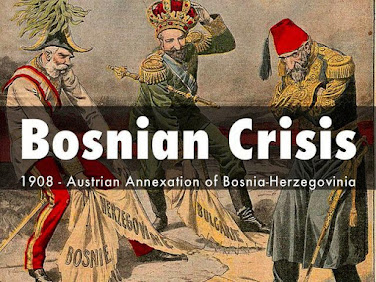
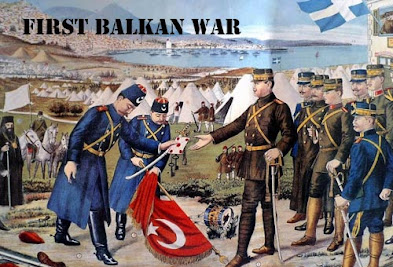
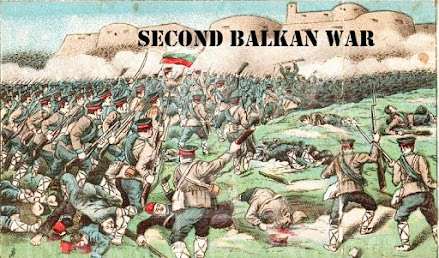
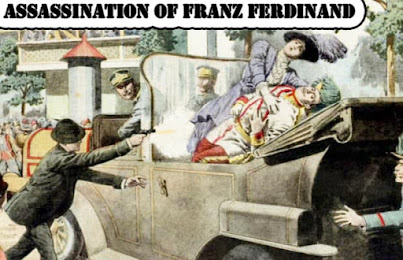









0 Comments